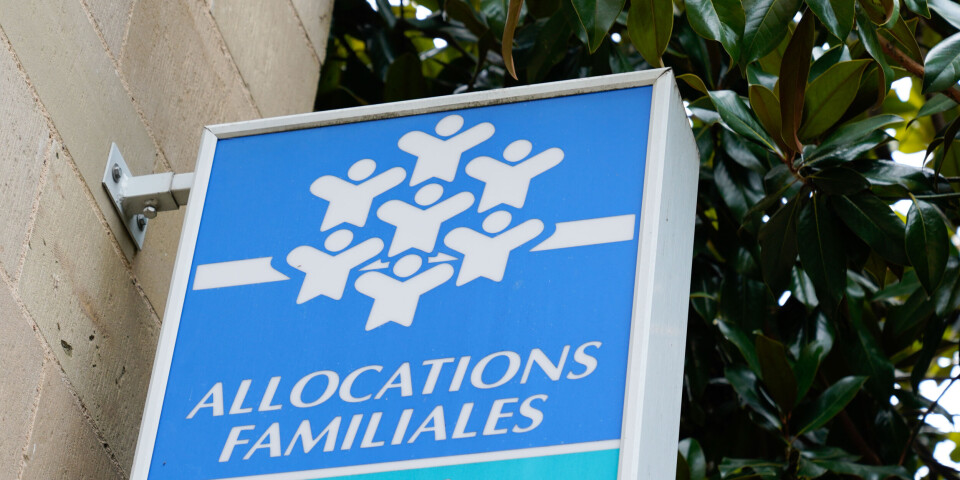-
Air France expands US schedule with direct Paris-Las Vegas route
Airline now offers 19 US destinations
-
2025 small business VAT reform definitively cancelled after Senate vote
New 2026 proposals remain on table but likely to be struck out as MP debates get underway
-
Small drop in percentage of French visa applications being declined
Roughly one in every six visa requests refused in 2024
Post-Brexit means-tests, residency card issues raised by campaigners
The Connexion spoke to the co-chair of British in Europe about the key issues Britons in France still face as the campaign organisation closes down

Campaigners for British people living in the EU have sought to flag up remaining issues for Britons before closing their organisation after five years of voluntary work.
British in Europe (BiE), representing a coalition of groups across the EU, has stayed open for two extra months to talk to MEPs and MPs. It is now closing, mostly due to lack of funding.
Read more: Britons in EU lose representation as main campaign group winds down
Co-chair Fiona Godfrey said one outstanding issue is the right for families including EU citizen members to move back to the UK without strict UK immigration law, including a means test, being applied.
There is a deadline of March 29, by which point in theory those concerned were meant to apply for and obtain a ‘family permit’, then move to the UK and apply for ‘settled status’.
She said the UK’s Home Office has now clarified to BiE that those who have applied for a permit before the cut-off date and are waiting for it to be processed – back-logs of up to six months are reported – can come back to the UK after the deadline and apply for settled status then.
“It’s a positive step forward, and a little extension which we weren’t expecting,” Ms Godfrey said. “It will give a few more couples time to make their decisions and get over there.”
Problem flagged up with PIP disability benefit
Another issue they have raised is a recent suggestion by the DWP minister to combine the UK’s PIP disability benefit, which is exportable to WA Britons, with universal credit, which is not. BiE argues that ending PIP payments for WA Britons would breach the WA, Ms Godfrey said.
“We’ve flagged it to the foreign office and cabinet ministers and have been told the UK government is aware of its commitments on social security provisions and will keep an eye on this.”
Reports of some young Britons from families in the EU struggling to obtain ‘home’ fee rates at UK universities and/or UK student finance were another remaining issue.
As The Connexion clarified earlier, exact rules vary in the devolved nations, with Scotland having stricter rules on student finance than the other areas. However under certain conditions, both home fees and finance should be possible.
Ms Godfrey said this is especially important for young people from EU countries, such as France, which no longer usually give grants or other student finance for study in the UK. “All these little consequences, that no one thought of when they voted to leave, are making life difficult on a daily basis,” she said.
Residency cards for Britons
Finally, she said there are two issues concerning residency cards which remain to be resolved. One is that non-EU citizens who live in EU countries for over five years may apply for cards (in France carte de résident de longue-durée UE) which give limited EU ‘free movement rights’ that are not included in the WA card.
It remains to be seen if countries like France will allow WA Britons to apply for one in addition, if they wish, though she said the European Commission has agreed in principle that Britons have the same rights to certain residency statuses as any other non-EU foreigner.
Another is how countries will manage the issue of converting five-year WA cards to the ‘permanent’ ones people are entitled to after a full five years in France; whether they will alert them when they are entitled to apply, or leave it to those concerned, and what documents they will ask them to supply.
The French authorities have not so far clarified whether they will ask only for the limited list of documents that those applying initially for ‘permanent’ cards were asked for, or a fuller set, including proof of continuous residency, means and healthcare, as would be permitted under the WA.
Ms Godfrey said: “One thing we have asked for is better communication in general, not just on our basic residence rights, but about all of the aspects of the WA and how it interacts with other parts of EU and national immigration law. We need member states and the commission to give easy-to-read guidance on all this.”
She added that Britons should know that in the event of their WA rights not being respected, they have the right to complain to the European Commission about it.
‘We can be proud of what we have done in response to Brexit’
“We’re sorry we’re closing down because the point is this is the beginning of Brexit, it’s not the end. There will be thousands of questions that come up as to how the WA operates. There are EU directives on residency rights from 2003-4 that are still raising questions and cases in the European Court of Justice. So this is going to go on for decades, not just years.”
Ms Godfrey said however that, looking back, the two Brexit deals had, though not perfect, safeguarded more rights than would have been the case with no deal, including on social security issues such as pensions and health.
Another good outcome was the agreement that WA Britons may leave their host country for up to five years without losing their rights.
“I think all of us, not just BiE but the British community across the EU, EEA and Switzerland can be proud of what we have done in response to Brexit. It’s not been easy for anyone,” she said.
“We’ve been conscious that most of us didn’t even have a referendum vote and among our community those that could vote, didn’t vote for this. We tried to make sure our voices were heard and that citizens’ rights were not just a priority in theory, but in practice too.”
Related stories:
Fears over UK’s challenging mixed nationality rules after Brexit
Campaigners for Britons abroad recognised in Queen’s birthday honours
























